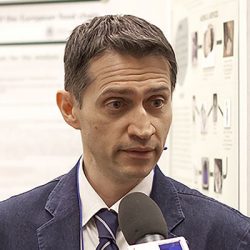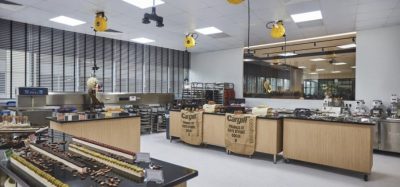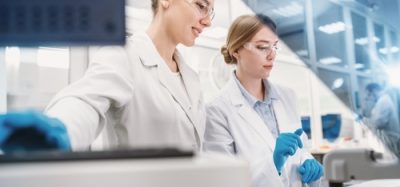The EU’s new smartphone
- Like
- Digg
- Del
- Tumblr
- VKontakte
- Buffer
- Love This
- Odnoklassniki
- Meneame
- Blogger
- Amazon
- Yahoo Mail
- Gmail
- AOL
- Newsvine
- HackerNews
- Evernote
- MySpace
- Mail.ru
- Viadeo
- Line
- Comments
- Yummly
- SMS
- Viber
- Telegram
- Subscribe
- Skype
- Facebook Messenger
- Kakao
- LiveJournal
- Yammer
- Edgar
- Fintel
- Mix
- Instapaper
- Copy Link
Posted: 2 February 2017 | Michel Nielen, Michele Suman | No comments yet
All too often food quality and safety testing is an inefficient, expensive and ineffective process, sometimes unable to ensure food safety for all consumers and unable to prevent major food fraud incidents. Here Michele Suman and Michel Nielen explain why a paradigm shift in quality and safety testing is urgently required in order to free up resources for an renewed battle against fraud in the food chain.


As an enabling technology solution, the FoodSmartphone ETN proposes the development of smartphone-based (bio)analytical sensing and diagnostics tools for simplified, on-site, rapid, pre-screening of food quality and safety parameters as well as wireless data transfer to servers of relevant stakeholders.
With modern technology offering more and more solutions to problems, a new project was launched in January 2017 which aimed to use smart phones to improve food safety and food quality. Over 48 months universities, research centres, industry and SMEs will all work together in order to acheive a plethora of goals.
The project is part of the European Union’s Horizon 2020 project, Specifically it is an Innovative Training Network under the Marie Sklodowska Curie Actions framework.
Knowledge of reference compounds in food that are peculiar to the characterisation of quality, frauds and/or safety issues has been the driving force behind the development of new analytical solutions over the last decade. Analytical chemistry has evolved over the years thanks to the ever-increasing emphasis on ensuring safe and valuable food for human and animal consumption. Food which is free from adulterants and contaminants such as mycotoxins, pesticides, veterinary drugs, etc. There is also a growing need to recognise the presence of allergens in various types of food, even complex foods?, and which have undergone heavy changes due to the effects of production processes. Another “evolutionary pathway” of analytical chemistry has been identifying and characterising volatile components of foods that can act as markers representative of organoleptic sensations or warning lights for potential alterations and shelf life monitoring.
Today’s world moves at an incredible speed compared to 50 years ago and the analytical sciences follow this trend. With the now globalised market of imports and exports of raw materials and finished products, the development of fast and easy systems to monitor food quality and safety has become virtually inevitable.
Project Objectives
Participants have joined the project to achieve a whole host of objectives. They will study the challenge of smartphone-based analysis systems having advanced biorecognition, signal transduction, microfluidic sample handling and image data handling solutions. Obviously this challenge transcends any one discipline and this is why bringing together such disparate bodies and professionals presents such a thrilling opportunity.
The project also seeks to develop user-friendly, rapid integrated sample preparation and smartphone-compatible apps, to ultimately ensure adequate field implementation for both professionals and future Citizen Science, meaning research carried out, in whole or in part, by people other than professional scientists.
Developing a unique range of smartphone-based on-site screening demonstrators for food quality and safety issues is also a top priority. These concerns could include, but are by no means limited to: pesticides, allergens, mycotoxins, food spoilage organisms and marine toxins.
High-level training will also be provided to a group of multidisciplinary scientists. This will seek to integrate expertise in varied fields such as (bio)analytical chemistry, physics, micro-engineering and ICT knowledge into a common pan-disciplinary pool. This will allow the delivery of knowledge and expertise when facing major socio-economic challenges, such as maintaining a healthy, safe and fair food supply.
Finally, the collaboration will also seek to substantially improve the career prospects of early-stage researchers across academia, public research institutes and private industry sectors, particularly in SMEs.
Project Uses
The FoodSmartphone project is providing a unique mix of exciting PhD research and a wealth of training in science, innovation and transferable skills.
The European Training Newtwork (ETN) will provide 14 network wide events ,11 mandatory intersectoral secondment opportunities and a whole host of other optional events where those involved can better themselves. The results from the ETN will be widely disseminated to key stakeholders, embedded in continuous education programs and translated into a final exploitation plan.
Horizon 2020
Horizon 2020 is the largest research and innovation project the EU has ever undertaken. Almost 80bn Euros of funding will be made available between 2014 and 2020 – in addition to the private investment this money has, and will continue, to attract.
The purpose upon launch was to deliver more breakthroughs, discoveries and world firsts by taking great ideas from the lab to the marketplace. This in turn would drive economic growth, create jobs and ensure Europe’s continued competitiveness on the world stage.
Part of the initiative was removing barriers to innovation and making it easier for the public and private sectors to work together to produce world class science.
Marie Sklodowska Curie Actions
In January 2014, with the Launch of Horizon 2020 came the rebranded Marie Sklodowska-Curie Actions (MSCA).
In the period betwenn 2014 and 2020 over 6bn Euros will be awarded by MSCA to support research, training and career development focused on innovative skills. The programme is a ‘bottom up’ approach funding cross-sector mobility that implements excellent research in any field.
There are MSCA grants for all stages of a researcher’s career, from PhD candidates to highly experienced researchers, which encourage transnational, intersectoral and interdisciplinary mobility. The MSCA will become the main EU programme for doctoral training, financing 25,000 PhDs.
Innovative Training Networks
Innovative Training Networks (ITN) are one type of MSCA. ITN provide high level doctoral-training inside and outside of academia. They bring together universities, research centers and companies from a range of different countries to train the researchers of the future.
The funding boosts scientific excellence and business innovation, and enhances researchers’ career prospects through developing their skills in entrepreneurship, creativity and innovation.
About the authors













